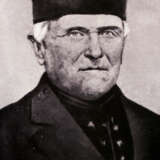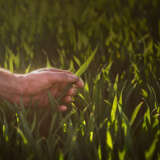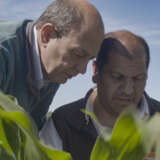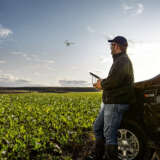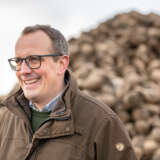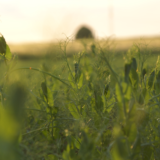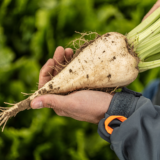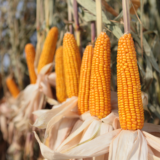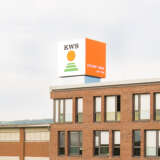Historical personalities
Faces of growth
The development of our company since it was founded in 1856 has been a success story to this day, despite many crises and upheavals. We owe that to the many people who have worked for KWS for more than 165 years or continue to do so today. Representing the many faces and characters, we present a few personalities from KWS' history who have borne entrepreneurial responsibility in various ways and kept our company on course.
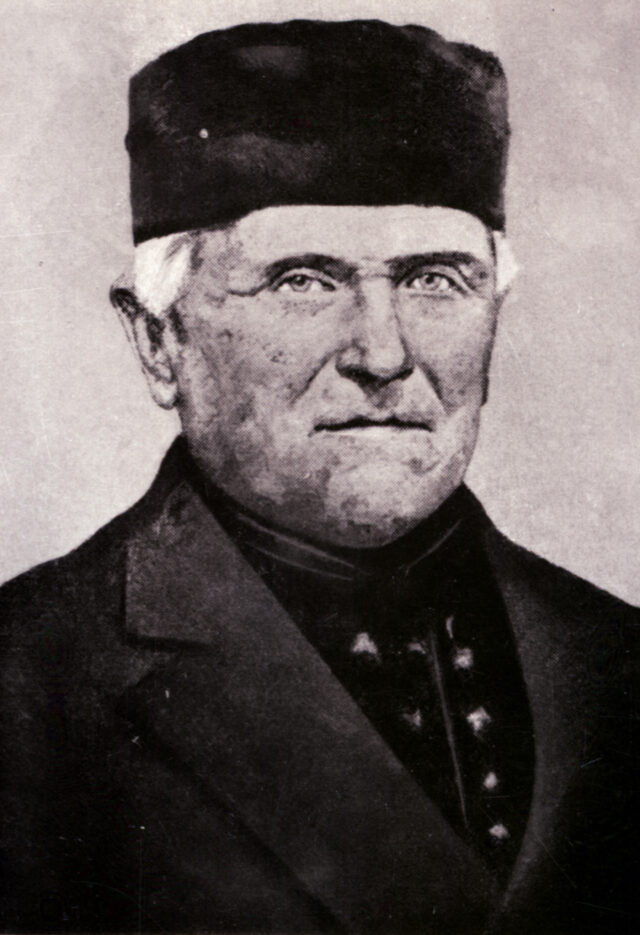
By acquiring a majority stake in the Kleinwanzleben sugar factory, farmer Matthias Rabbethge Sr. establishes in 1856 the company that is today KWS.
Foresight in the DNA – Farmer and company founder Matthias Christian Rabbethge (1804-1902)
The arable farmer Matthias Christian Rabbethge (1804-1902) was not born to start a business. Coming from a small farm in the fertile Magdeburger Börde region, he single-mindedly increased his holdings, eventually buying a farm in Klein Wanzleben and at the same time acquiring ten shares in the local sugar factory. Rabbethge had recognized the potential of this new industry. He gradually took over the shares of his co-owners and finally held a majority stake in the company from 1856 - KWS was born.
The "cap man" led the young company to success with two decisions in particular. With his son-in-law Julius Giesecke, he brought a financially strong partner to his side. He also allowed his two sons to study ─ a rather rare investment in the future among farmers at the time. Having thus set the course, the senior passed on responsibility for the company to Julius Giesecke and his son Matthias Rabbethge in 1864.
He followed the ups and downs of his life's work until his death at the age of 98 (and eventually saw his vision of a sugar-rich and thus profitable beet realized).
Sugar beet breeding pioneer – Matthias Rabbethge Jr. (1832-1885)
KWS' core competence to this day is breeding new plant varieties with improved properties. Matthias Rabbethge layed the foundation for the company's path to becoming one of the world's leading breeding companies. Based on scientific findings and methods, the trained economist systematically and patiently bred sugar-rich beets so successfully that his fiercest competitor called him "the master in Germany”. Julius Giesecke provided financial security for the cost-intensive breeding work. He married the only daughter of the old Rabbethge and successfully developed the farms. He increased the acreage for seed multiplication from 50 to over 1,000 hectares.
Despite this positive development, the company plunged into a crisis that threatened its existence when, within a few years, first Julius Giesecke and four years later Matthias Rabbethge died in 1885. High investments and sharply falling sugar prices led to liquidity problems. Eventually, the death of the younger Rabbethge resulted in a crash as creditors and banks had lost confidence.
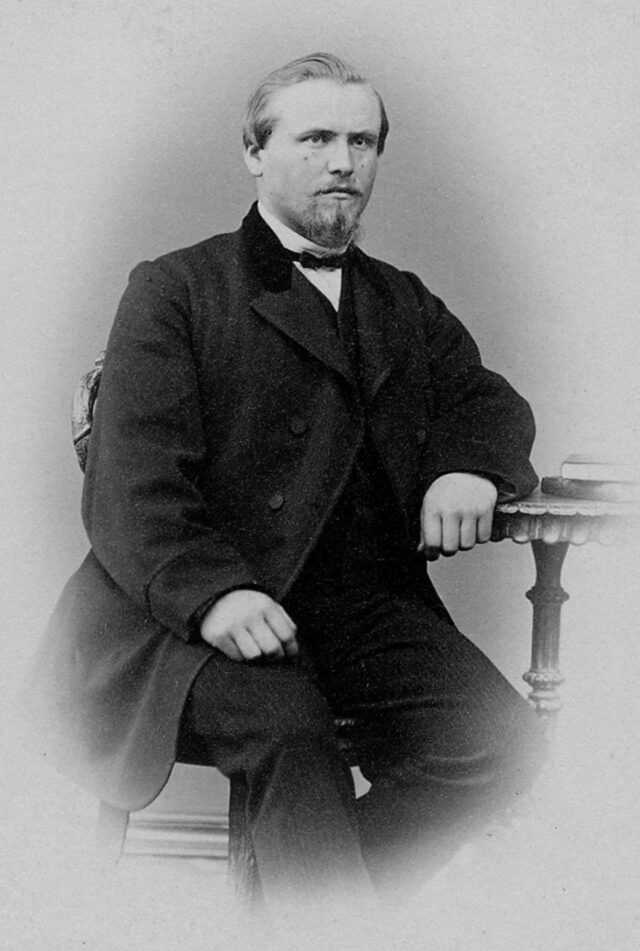
Matthias Rabbethge's successes in sugarbeet breeding also earn him the highest praise from the competition. He runs the company together with his brother-in-law Julius Giesecke.
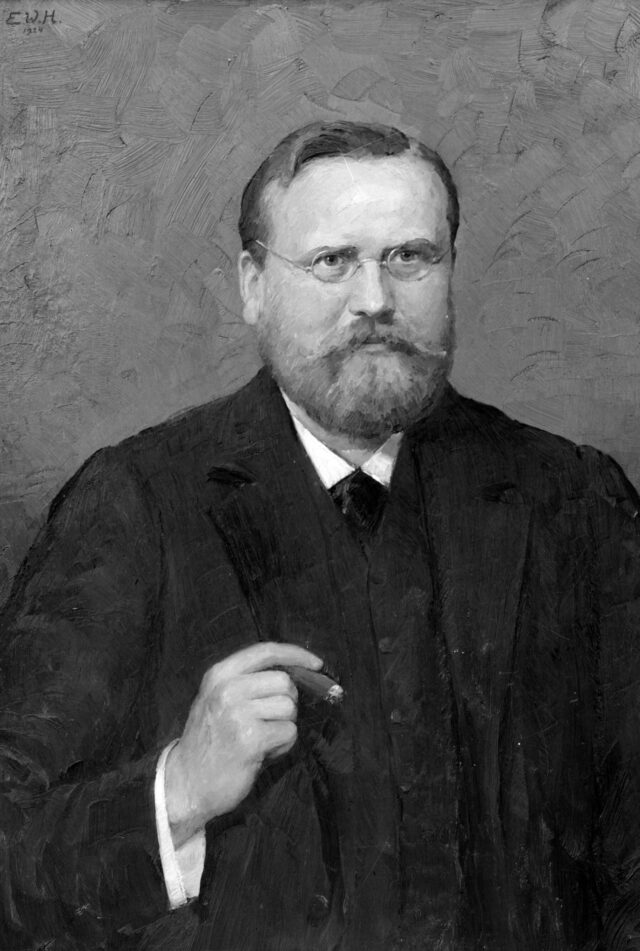
Carl Valentin Rabbethge, the second son of the founder, leads the company out of an existential crisis and into a new upswing.
Rescuer in time of need – Carl Valentin Rabbethge (1842-1890)
Carl Valentin Rabbethge succeeded in averting the threat of bankruptcy. The softening heir had built up his own existence as a farmer and sugar producer in Einbeck. In the crisis, he returned to Klein Wanzleben and, with negotiating skills and commitment, won the trust of creditors and new investors. On the basis of the flourishing beet seed business, the outspoken family man reestablished the company as a stock corporation. Carl Valentin Rabbethge led the AG to economic success within a short time and registered the "Kleinwanzlebner Original" sugarbeet seed as KWS' first trademark in 1885. However, the double burden of managing his operations in Klein Wanzleben and Einbeck exhausted him so much that he died of a heart condition as early as 1890.

Registered trademark Rabbethge und Giesecke
Prudent entrepreneur – Ernst Giesecke (1859-1930)
With foresight and determination, Ernst Giesecke led the Kleinwanzleben stock corporation through a long period of stability and economic upswing. After the early death of his uncle, the 31-year-old initially managed the company alone for ten years. Giesecke consistently focused on rationalization and expansion through the use of the latest technical achievements of his time in agriculture.
This also included the construction of a light railroad. From 1906, its locomotives and wagons transported sugar beet and seed from the surrounding estates to Klein Wanzleben via the 70-km-long rail network. But it was not only in this area that he set the course for further development: in 1900, the company founded its first branch abroad in the Ukraine, with others soon to follow. He demonstrated a good instinct with his sense of the importance of science in breeding when he brought Wilhelm Raatz into the company as seed breeding manager and two other experts. They made Kleinwanzleben sugarbeet breeding the world market leader at the turn of the century.
His many-sided commitment received great recognition when Kaiser Wilhelm II appointed Giesecke one of the eleven founding senators of the Kaiser Wilhelm Society in 1911. At that time, the predecessor institution of today's Max Planck Society brought together the country's scientific elite.
Together with his cousins Erich and Oscar Rabbethge, who now shared responsibility on the Board of Management, the trio pushed ahead with the expansion of the portfolio to include the cultivation of potatoes, cereals and fodder beets in the 1920s. For the approximately 2,000 employees, the company invested in new housing estates, civil servants' houses, a bathhouse with a medical station and a play school during this period.
When Ernst Giesecke died in 1930, he had already made far-sighted arrangements for his succession. He was succeeded on the board by his son-in-law Karl Büchting, whom he had already brought into the company in 1918.

Ernst Giesecke's commitment gives KWS a long phase of economic stability and further development. Here he is wearing the official attire of a founding member of the Kaiser Wilhelm Society (now the Max Planck Society).
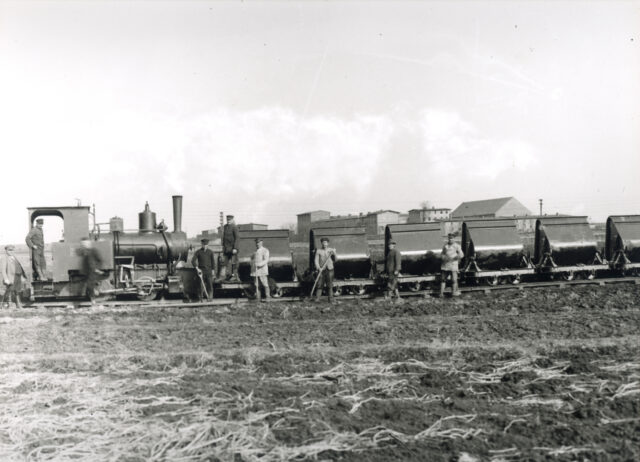
The factory's own light railroad transports sugar beet and seed from the surrounding fields to the sugar factory on its 70-km-long track network from 1906 to 1955.
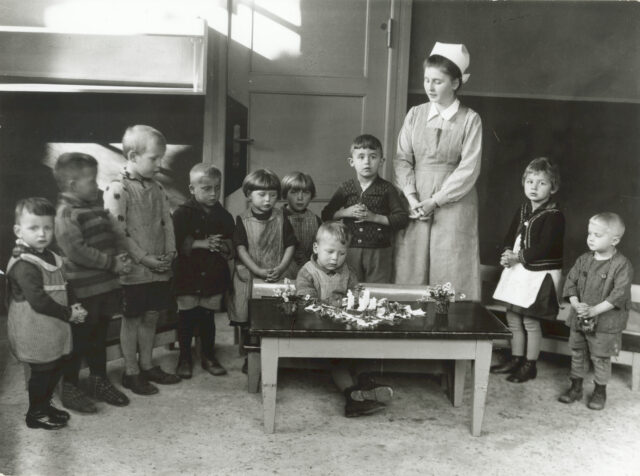
In addition to new housing estates and a bathing and medical center for its 2,000 employees, KWS provides care for the youngest children in a play school.
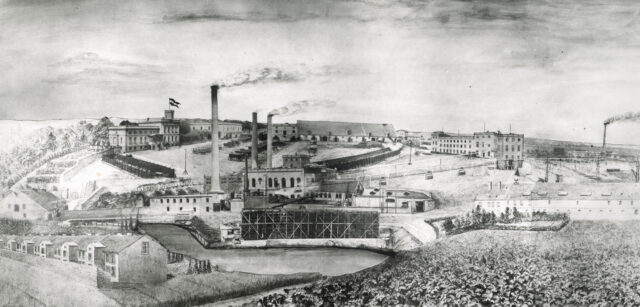
Visible from afar, the three chimneys of the sugar factory around 1900 shape the silhouette of Klein Wanzleben. Seed stores, housing estates, production and administration buildings are grouped around them.
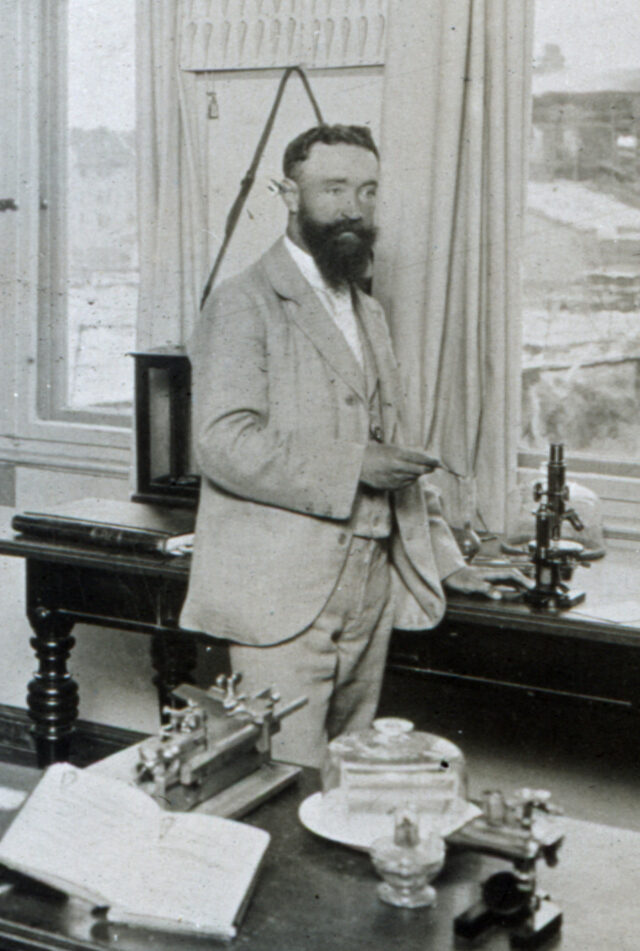
Sugarbeet breeders around the world continue to work with the breeding schemes and value tables developed by Wilhelm Raatz until the 1970s.
A driving force in sugar beet breeding – Wilhelm Raatz (1864-1919)
The mathematician, natural scientist and botanist Wilhelm Raatz made pioneering contributions to sugarbeet breeding. The breeding schemes he developed on the basis of scientific findings were used by breeders worldwide until the 1970s. On the basis of elaborate scientific trials and analyses, KWS' head of seed breeding determined at the end of the 19th century that the two most important breeding goals of high yield and high sugar content are not compatible in terms of breeding in one beet. According to his observations, optimum sugar yield can only be achieved by achieving a balance between heavy weight and high sugar content. From his findings, he developed a value table that shaped sugarbeet breeding for decades.
His classification of the breeding material into four basic types was also groundbreaking: He classified the ratio of sugar content to weight as high-yielding (E), normal (N), high-sugar (Z) and very high-sugar (ZZ). This put an end to the confusion of previous designations. Since then, beet varieties could be matched to cultivation requirements and soil qualities.
Responsibility in Hard Times – Oscar Rabbethge (1880-1965) and Karl Büchting (1887-1982)
From 1910, Oscar Rabbethge steered the company's fortunes for 41 years. He was primarily responsible for breeding and production. Karl Büchting, who took over from his father-in-law, Ernst Giesecke, in 1930 after 43 years on the Executive Board, took over commercial and entrepreneurial duties. No sooner had KWS overcome the consequences of the First World War, inflation and unfortunate investments outside the company than the darkest years of German history set in, culminating in the company's flight from Klein Wanzleben.
KWS has employed seasonal migrant workers for field work in Klein Wanzleben since the beginning of the 20th century. Most came from Poland and Russia. They received wages, room and board. The Nazi state disenfranchised these voluntary helpers, who became increasingly indispensable in agriculture during the course of the war, and turned them into barracked forced laborers. This also included prisoners of war. In official German, these workers were called "Ostarbeiter" (Eastern workers). The state withheld their "wages" through various compulsory taxes.
The living conditions of the forced laborers who worked at KWS can hardly be reconstructed today due to a lack of eyewitnesses and sparse sources. Aware that there were certainly painful human fates in Klein Wanzleben as well, the company joined the Foundation "Remembrance, Responsibility and the Future" in 2000, whose aim is to compensate victims of National Socialist coercive measures.
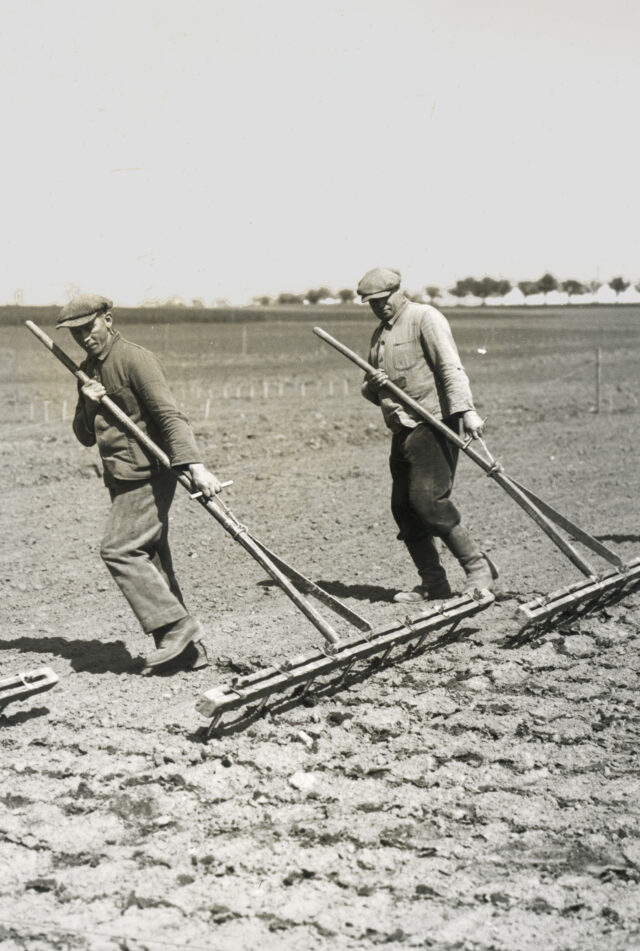
In the 1940s, heavy manual labor in sugarbeet cultivation also includes row pulling in preparation for sowing.
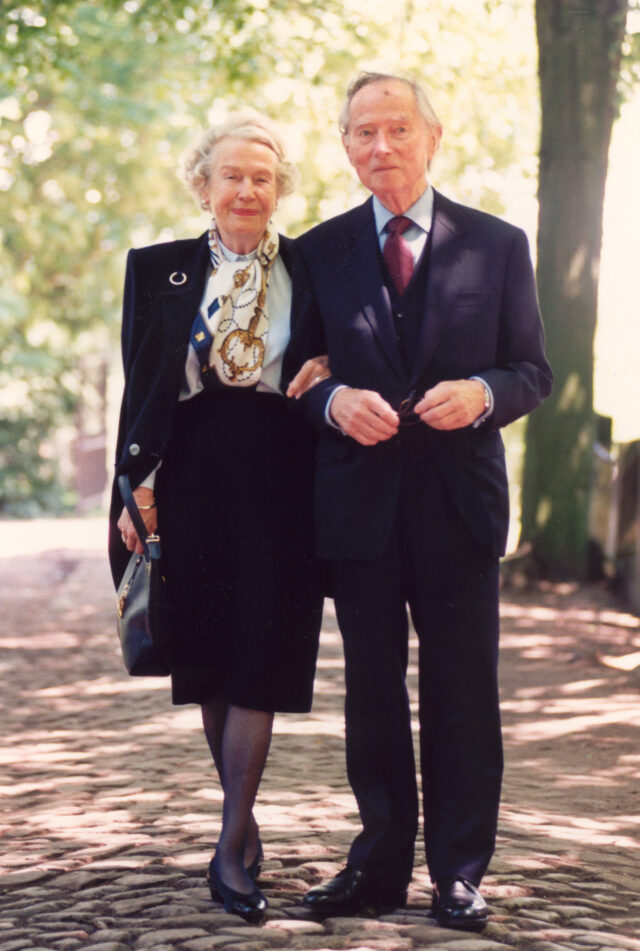
Carl-Ernst Büchting and his wife Johanne (maiden name Rabbethge) visit Klein Wanzleben in summer 1995.
Driving force of the new beginning – Carl-Ernst Büchting (1915-2010)
Two days after Carl-Ernst Büchting returned to Klein Wanzleben from the war, he already had to leave his home village again. He was part of a convoy with which the British military government shipped elite seed, research documents, laboratory material, experts and the Rabbethge and Giesecke families to their sphere of influence in Einbeck, Lower Saxony, in a spectacular night-time operation shortly before the invasion of the Russian army (more details can be found in the KWS Chronicle).
With this rescued breeding material, Carl-Ernst Büchting, together with his father Karl and father-in-law Oscar Rabbethge, rebuilt the company in the West from very small beginnings - always following his life motto: "You have to make a stepping stone out of every obstacle". The construction of a warehouse building, which had already begun in 1946, was the largest private building project in the British occupation zone.
Andreas J. Büchting once respectfully called his father Carl-Ernst an amateur lawyer with a love of agriculture and science. The sugar technologist played a key role in an international convention on the protection of new plant varieties in 1961 - with repercussions for the industry worldwide. Numerous honors reflect his services to national and international legal protection.
During his years on the Executive Board from 1951 to 1978, Carl-Ernst Büchting also drove forward foreign business. In the U.S., he succeeded in reopening the market for sugarbeet seed. With his entrepreneurial vision, he even led KWS to the top of the market there. In Germany, today's KWS acquired Ferdinand-von-Lochow-Petkus, the largest German cereals company at the time. Corn had been added to the product portfolio since 1955.
In the mid-1970s, Carl-Ernst Büchting brought with him a suggestion from the Max Planck Institute for Breeding Research: to enter the field of biotechnological research. The modest entrepreneur, married to the great-granddaughter of the company's founder, thus consistently followed another quote he liked to use: "Times change, and we change with them."
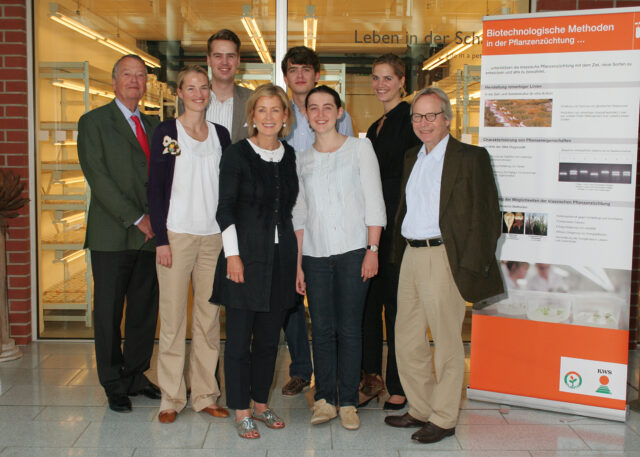
Research-based and future-oriented: Andreas J. Büchting (right) is concerned about the independence of our family-run stock corporation. He has found a reliable partner in Arend Oetker (left, with his family).
Guarantor of Independence – Andreas J. Büchting (1946)
As a representative of the sixth generation, Andreas J. Büchting took over management of KWS as Spokesman of the Executive Board in 1978. The agricultural biologist, who holds a doctorate, represented the change in our company's communication and management structure from rather patriarchal to collegial.
Büchting was committed to dialog and transparency in the use of rapidly developing biotechnological breeding methods. The Board of Trustees for Plant Breeding, which he initiated and which was also made up of critics of green genetic engineering and discussed and evaluated biotechnological breeding approaches at KWS until 2015, is unparalleled in the industry.
The 1980s and 1990s were characterized by growth with a sense of proportion. Research-based and future-oriented, Büchting set the tone for the continuous expansion of its international activities. One focus was the systematic expansion of corn and hybrid rye breeding. During his time, women increasingly took on management positions at KWS.
Andreas J. Büchting had no fear of contact with Germany's neighboring state. In the 1980s, he visited the GDR's Institute for Sugarbeet Breeding in Klein Wanzleben with a KWS delegation. Loose business relations developed. Although it would not be absolutely necessary from a business point of view, after the fall of the Berlin Wall Büchting advocated that KWS return to its founding location and invest in an efficient breeding station here.
“AB” was particularly concerned about the independence of our family-owned stock corporation. For over 25 years, he resolutely and consistently defended the company against several takeover attempts from the sugar industry and agrochemicals. In 1994, he won over the entrepreneur Arend Oetker as a reliable partner. Since then, the Büchting/Oetker majority share pool has ensured KWS' independence - now represented in the next generation by Marie Schnell, a daughter of Arend Oetker, and Felix Büchting.
Further information/links for interested parties (all available as download)
- KWS Chronicle, 2006
- The Rye King, life and work of the breeder Ferdinand von Lochow, 2014
- Keeping in touch with each other, 25 years of the Kuratorium Pflanzenzüchtung, 2017
- Special issue insideKWS, Klein Wanzleben, KWS and the turnaround, 2019
© KWS SAAT SE & Co. KGaA 2025



